PUNARCHITH: 2012-22
REFLECTIONS ON A DECADE-LONG JOURNEY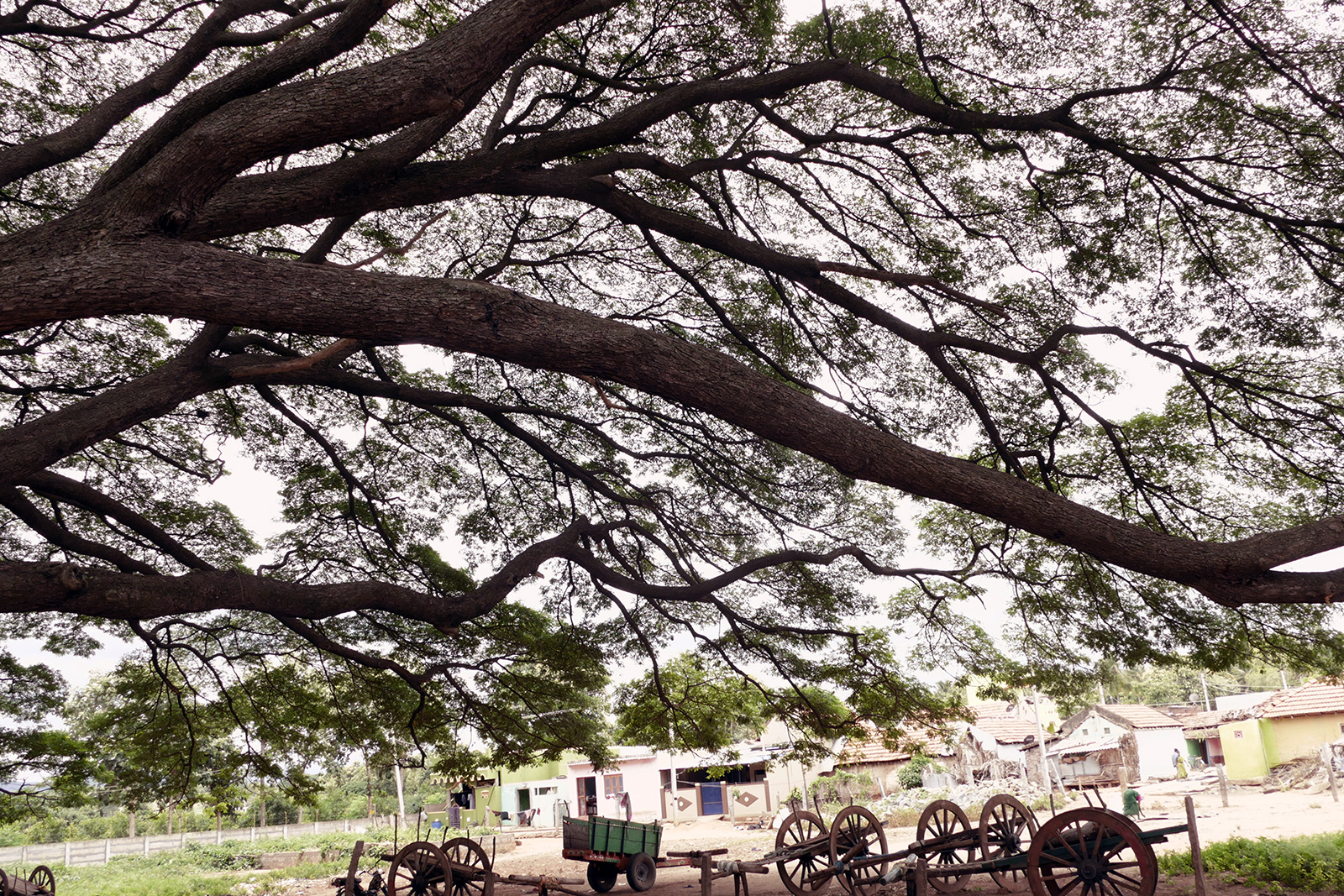
Punarchith’s experience in fostering and instituting an alternative learning experience for rural youth has been marked by the need to fine-tune all the programs to the needs and orientation of rural life. At a time when much of India, especially rural and agrarian worlds, are experiencing expedited and intense forms of change, it has been a challenge for us to constantly revise and institute programs and activities that cater to the interests and possibilities of a changing world. Although guided by the ideas of addressing issues of social justice, economic opportunity, and democratic engagement, we have gone beyond working with blue-prints for any of the programs. The ‘Integrated Learning Program’, our flagship program, was meant to cater to the interests of rural youth to be engaged in sustainable agriculture and to lead holistic lives in the rural areas itself. But,
given the extensive disembedding that rural India, including the Chamarajanagar belt, is experiencing we have been faced with the fact that a strong anti-rural and anti-agriculture attitude has meant that the course is not in demand. Most youth seek training and employment for urban occupations and see such courses as redundant. Those youth who have participated in our programs (a total of 109 youth from 8 batches conducted until now) are faced with issues of lack of rights to conduct sustainable agriculture on their family plots, inadequate resources, or pressures to have salaried jobs. Based on these trends, the course from 2023 onwards will be offered as specialised modules (sustainable agriculture, democracy, climate change, etc) and will be open to all rural youth from across Karnataka.
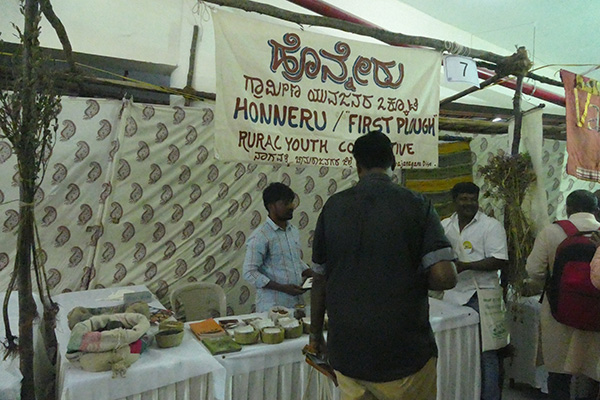
Two of the key programs, Honneru (the rural producers’ collective) and GramaSethu (Village Bridge) were spin-offs from the Integrated Learning Program and seek to provide continuous support to the livelihood and citizenship abilities of the youth. Although it began well, the Covid phase saw Honneru products face challenges in marketing and the whole enterprise needs to be revamped to make it more locally viable and competitive at the larger market level. Some of the youth, especially those in Tumkur, as participants in the GramaSethu program, are doing stellar work in their own villages; orienting young children about ecological issues, conducting night learning support programs, trying their hand in sustainable agriculture and overall attempting to engage with alternative ideas for lives to be led with dignity and justice.
Angarike Maala, as a site for land restoration, biodiversity conservation and sustainable agriculture has been an unexpected site of learning for us. The focus of much of our work has been to restore the land, conserve the resources especially the soil, water and biodiversity, and practice sustainable agriculture. The work has been arduous, expensive and frustrating many times. However, we have learnt much from it and plans are to sustain it as a “living lab’ where experiential learning for various topics can take place. That it is also the site for the local Soliga to experiment with a plot where ‘taragu benki’ or litter fire is tried out is another feature of enabling local knowledge to be revived and strengthened. That we have ‘grown water’ (with the water levels in the tube-well rising from 211 feet to 116 feet) is a feat which we take immense pride in. Building a small, utility complex on it has been a challenge; primarily that of dealing with contractors and workers whose schedules and work ethics don’t match ours. Over the coming months, we hope to develop programs, especially those on experiential learning for varied audiences, and where participants can also spend a few days at the land.
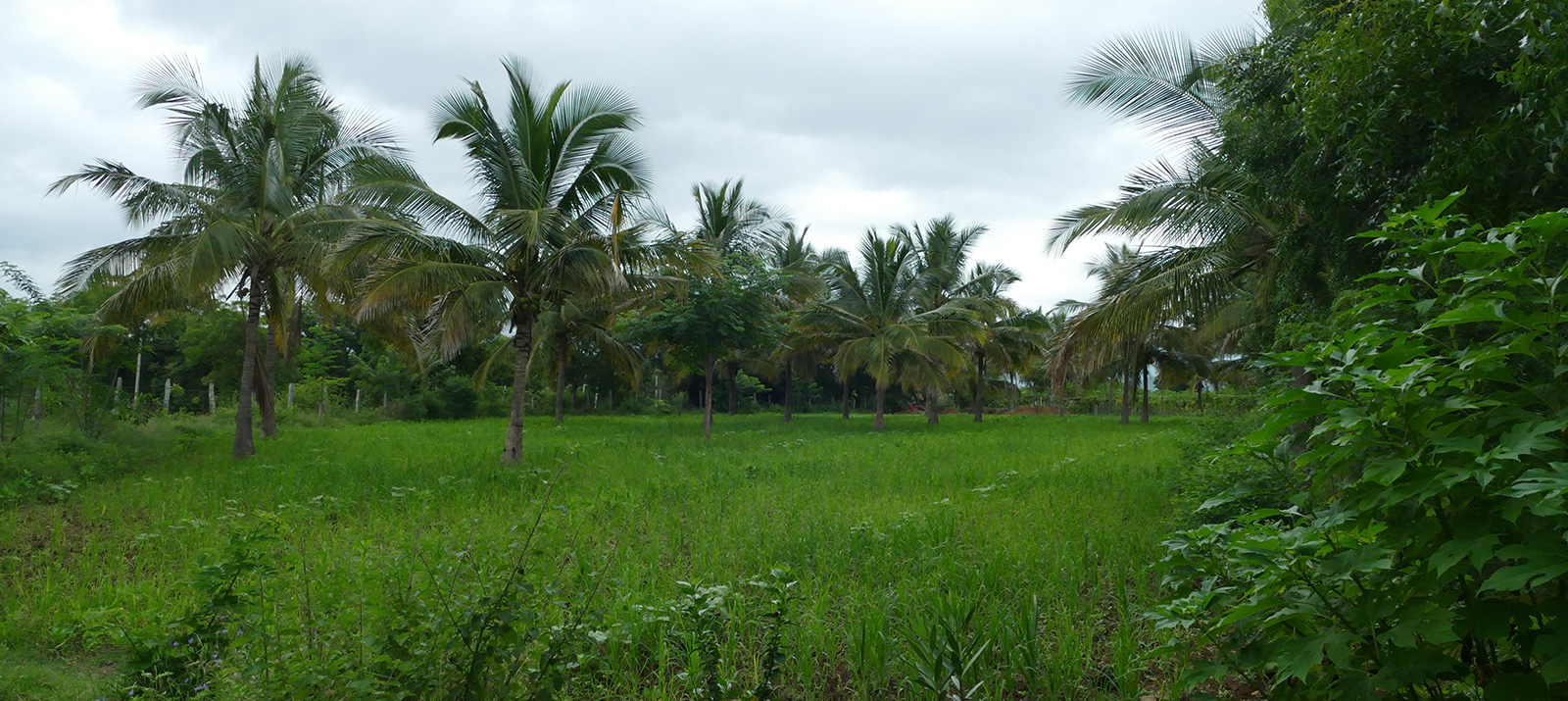
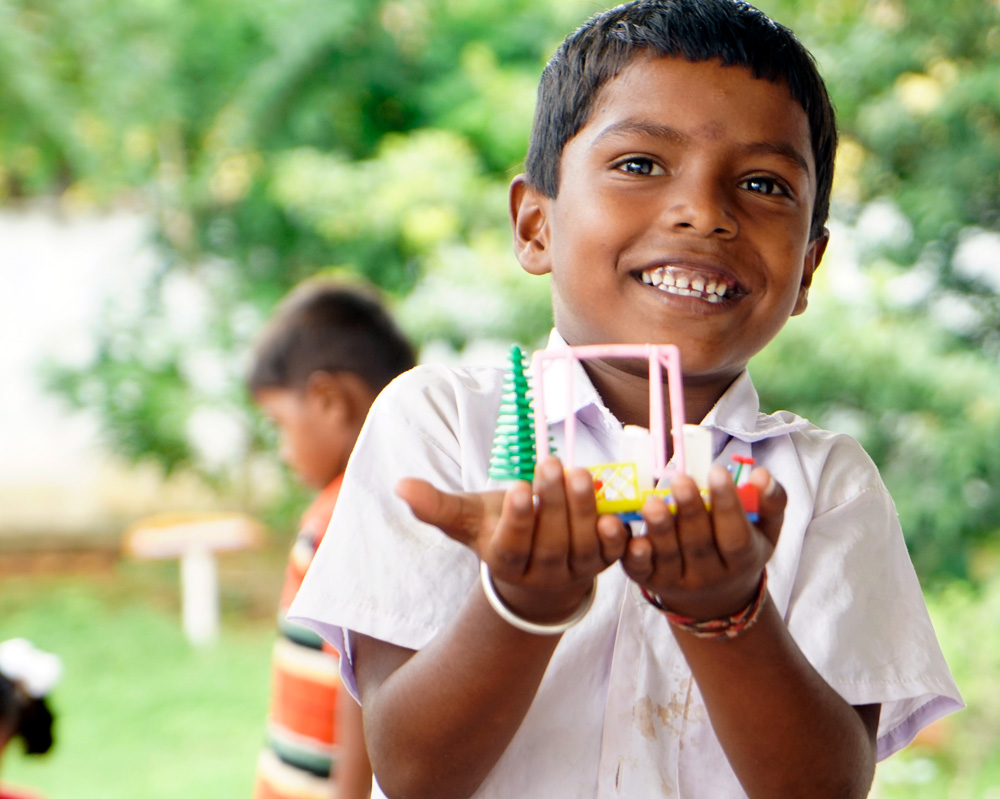
The Climate Change program was another program initiated to address some of the pressing ecological problems that are manifesting across the region. Despite numerous presentations to farmers, youth, and administrators, the response has been very limited and the sense of emergency seems to delude most residents. Plans are to persist with this program at multiple levels so that atleast some impact is made at a basic level. The challenge is to develop and articulate a decentralised action-plan for climate change mitigation and adaptation that is suitable for specific regions and which addresses the needs of the most vulnerable citizens.
Aniketana or the ‘Saturday Children’s Program’ which sought to cater to the creative needs of Nagavalli children has received a boost with Vinay engaging deeply and personally with some of the children on a more regular basis. A small group of regular students has emerged and they will be participants in varied focused programs and also receive scholarships over the coming years.
The Covid period from March 2020 to nearly mid 2022 saw us responding to the altered circumstances in which the vulnerabilities of the most disadvantaged were brought to the fore. Without much preparation or funds, the team plunged into Covid relief work and Punarchith’s handouts that simplified covid related details, provided information for seeking medical support, were absorbed by the government. Relief and rehabilitation work entailed providing food
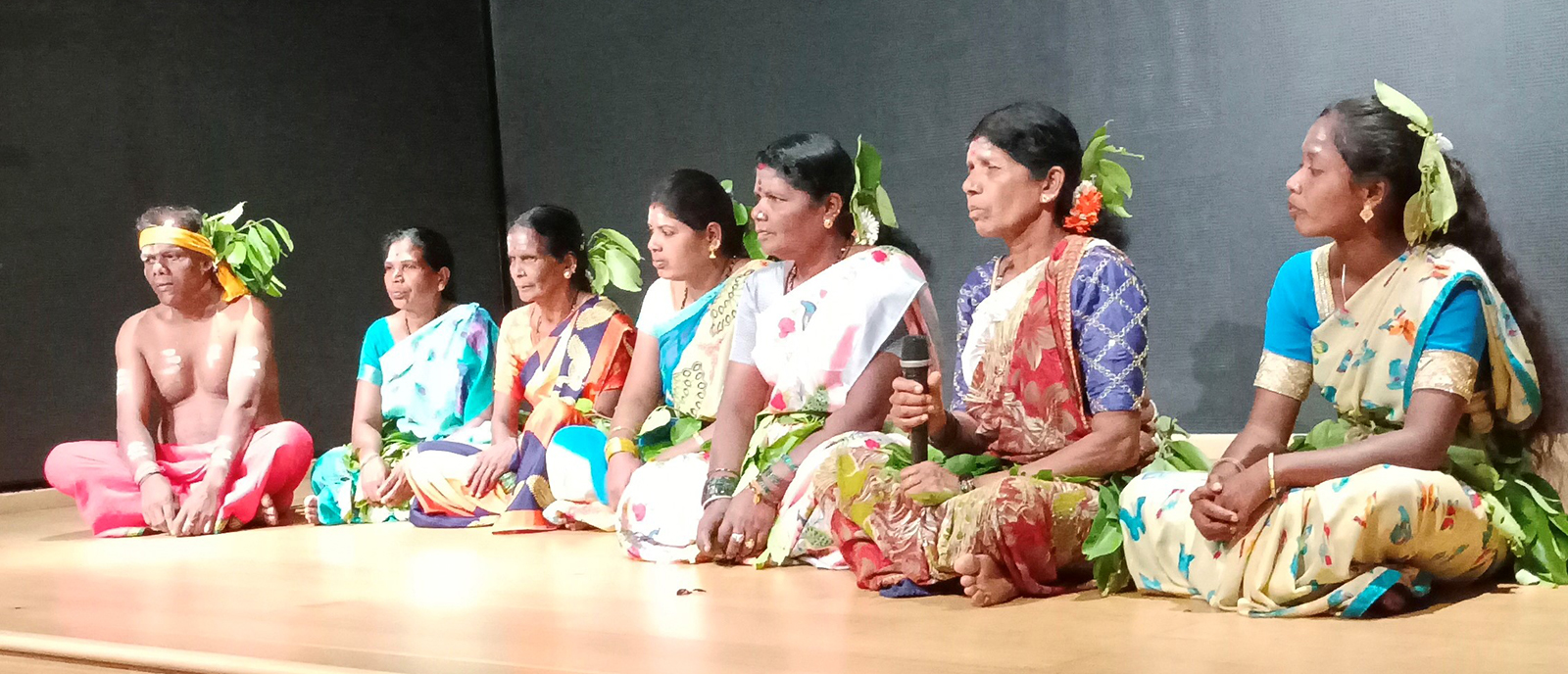
The Aadhi or Intergenerational Knowledge Transfer program was initiated by Samira as a way to address the serious loss of knowledge and identity among Soliga youth. Its various outputs and work indicate high potential for forming a repository of Soliga knowledge and for atleast some of the youth to regain their own identities and knowledge systems.
The seed bank was conceptualised (in collaboration with Vanastree) as a complimentary and important dimension of both the sustainable agriculture program and the home garden. While the good monsoon years have seen us reap a bounty of seeds, the poor or fluctuating monsoons have also left us with little or no seeds.
Plans are to build and sustain a seed bank where local and organic seeds for dry cultivation can be stored and sold or shared.
Over the past decade, PUNARCHITH has been able to develop several publications that have also represented key issues. Starting with the documentation on ‘New Lease Agriculture’, to that of the “Dry Grain Complex’, we have developed handouts, booklets and books that address a range of issues. In addition, Kannada translations of the booklet on the ‘State of Rural and Agrarian India 2020’ has been received well. Team members have also independently authored various articles and books.
CHALLENGES AND PATHWAYS AHEAD:
If an overview of the evolution and impact of the programs indicate both the potential and challenges that lay ahead, the team discussed various other personnel, management and fund related issues. Given the strong anti-rural and anti-agricultural attitudes among rural residents, how do we bring the community together? What will it take and how long to articulate and show-case alternatives that are sustainable and equitable? Since our work is with disadvantaged communities how will we get them to engage with sustainability issues while they are focusing on income? Such challenges find no easy or quick responses and these are issues that need to be addressed at multiple levels. A ray of hope and optimism lies in working with children who are more open to ideas and may be able to internalise these ideas in the long-run. In terms of personnel, who will be able to carry on this work when the founders seek retirement or a less visible and engaged role? Will the full-time team members be able to carry forward the work and in what ways will they be assisted by volunteers and part-time persons? What type of organisation will PUNARCHITH be in the future? It is not advisable to be a typical NGO and dependent on charitable funds. Can programs be designed that will cater to individuals and groups who will be willing to pay for these? A decade since its establishment, PUNARCHITH sought to be a ‘collective’ and is not yet one. The differences (in class and cultural backgrounds of its members) indicate that forming a collective with complete equality is not easy. While new funding sources have to be identified, especially to build up the corpus fund, it will also be advisable to develop programs that can generate revenue for PUNARCHITH.
Overall, this has been an exhilarating journey; the tribulations and trials have taught us many lessons and the participants have often made us feel humble. A small sense of satisfaction has kept us engaged and ensures that we continue to persist. In a world full of tumultuous trends ours is only a small endeavour to carve out a space in which alternatives that enable social justice, economic equity and ecological sustainability can be tried out. To do this, we need to continue to ‘re-think’ many issues and ideas. Hence, PUNARCHITH will continue to be relevant even for us.
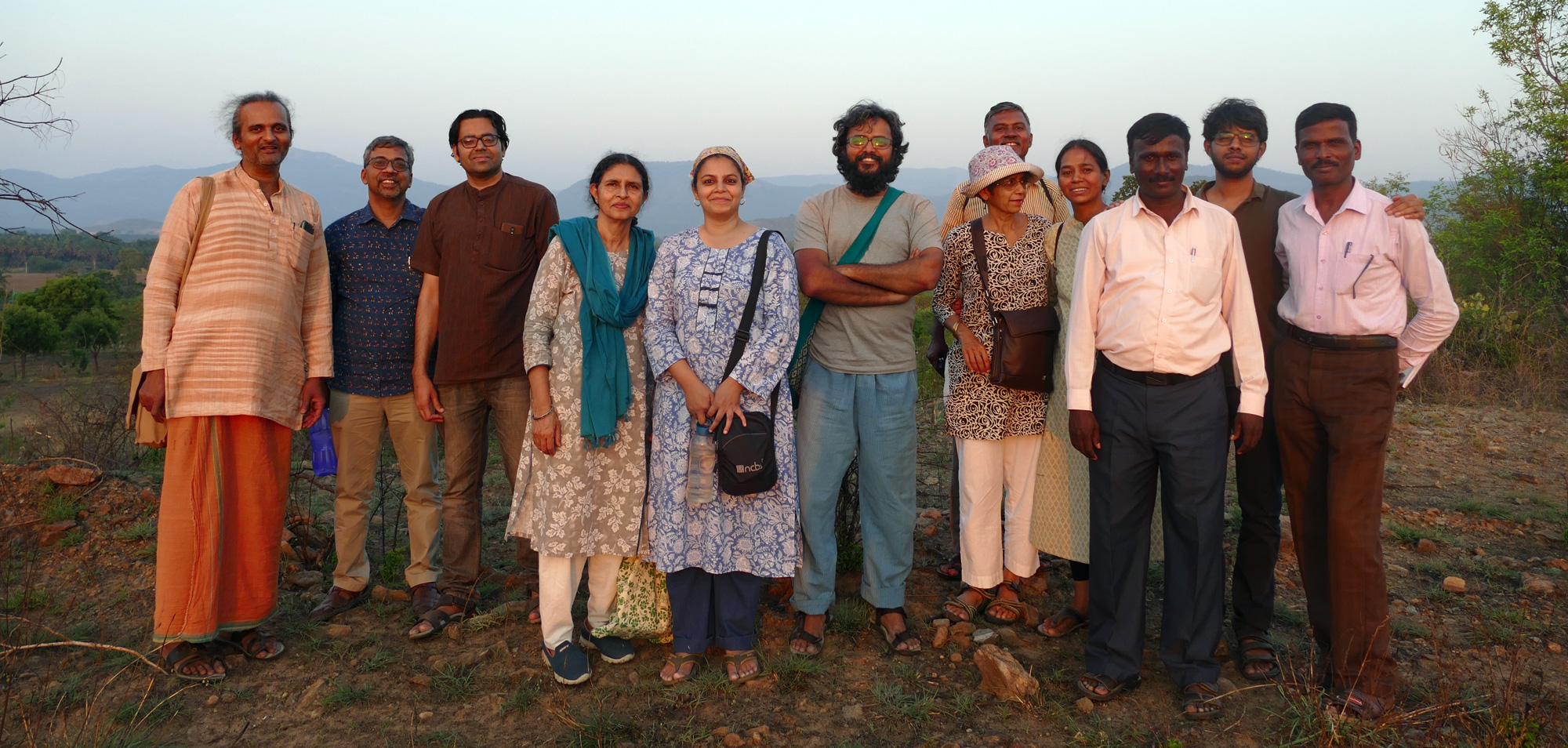
On April 17th and 18th 2023, all the PUNARCHITH core team members (Veerabhadranaika, Muthuraj, Sundramma, Vinay, Chandrakanth, Manuja Priya, Suma, Samira, Ratheesh, Sajan, Siddharth, Joshua, and Vasavi) met at Nagavalli and discussed details of the key programs, the lessons learnt and the new pathways for the coming years.
ACKNOWLEDGEMENT: For being with us during this past decade, we would like to thank: all the resource persons and volunteers who have made time to engage with us; our friends who have made personal financial contributors, and the following institutions for grants that have made the work possible: WATIS (Wipro Applying Thought in Schools); ITW Bengaluru; MoonFrog Labs, Bengaluru; Yuva Lok Foundation, Bengaluru; Exotic Travel, New Delhi; and RainMatter Foundation, Bengaluru. We also acknowledge with gratitude the pro bono work that architects Mohan Rao and Nikhil Udupa of InDesign provided in developing the utility complex at Angarike Maala.

